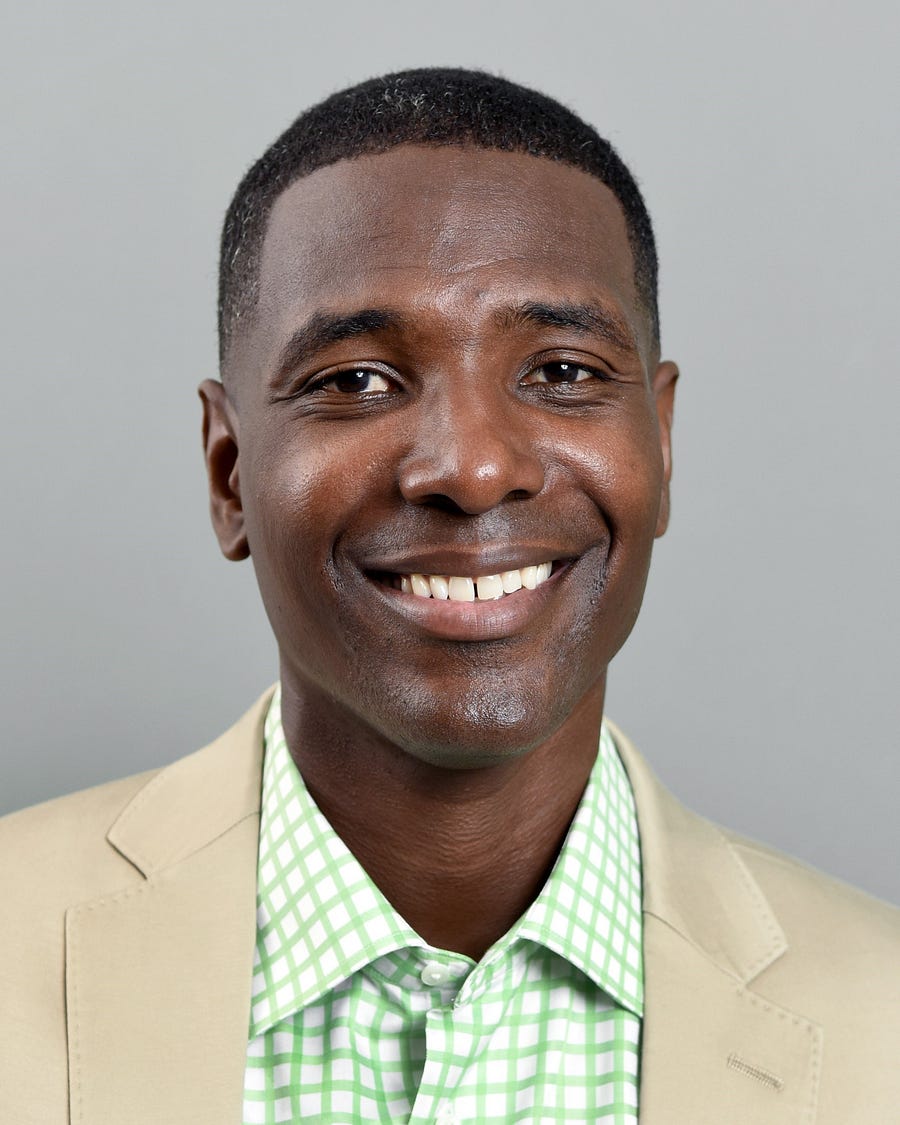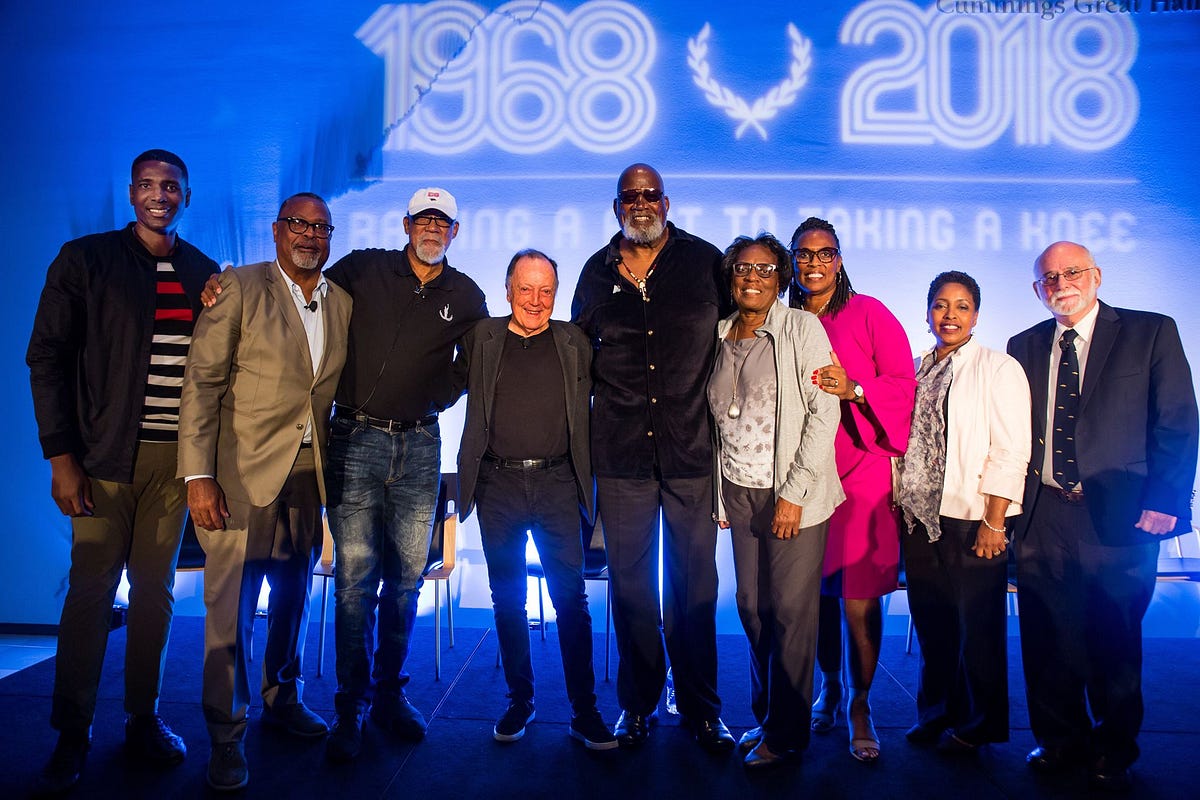Global Sport Institute Spotlight: Meet our Director of Research
To achieve our vision of making a positive impact on the global sports community, we must dig deeper into the critical issues affecting sport today and in the future — placing scholarly research at the core of nearly everything we do at the Global Sport Institute.
As an interdisciplinary institute operating independently of any specific college within Arizona State University, we have the opportunity to support a variety of sport-focused research interests that contribute to our overall goals. We do this through our own research efforts and by providing grants to researchers in individual disciplines.
Below is a Q & A with our very own Dr. Scott N. Brooks, Director of Research at the Global Sport Institute, who leads all of our research initiatives.

Dr. Scott N. Brooks
What brought you into the world of sport research?
During high school, I had a bad experience with a coach I had, and decided that I want to improve that experience for other young athletes.
My first research was an ethnography where I coached basketball in South Philadelphia. I would take field notes on my interactions with the players. Seeing what their plans were, dreams of playing college basketball and really trying to understand how they navigate that.
I wanted to understand what teams they needed to play for and what reputation they needed to have. What I figured out they needed was networks, exposure, and opportunity.
Is there a favorite non-GSI research project you have worked on? Why was it your favorite?
My favorite would be an analysis I did on Serena Williams and why she wasn’t the highest paid female athlete. On the women’s side of athletics, most of the highest paid female athletes are tennis players. It makes sense because tennis is regarded as a country club sport where the sponsors tend to be luxury brands like Rolex, so there is more affluence behind the sport. Yet Serena, who is the greatest tennis player of all time and had been the top of the tennis world, was consistently at number two on the list and sometimes as low as 4th or 5th. (Read Scott’s GlobalSport Matters article on this topic here.)
So I really wanted to understand why and how gender, race, and concepts of beauty play a role. Maria Sharapova was consistently at the top, who is a tall, blonde, Russian, and 6-foot player. So she really fit the stereotypical white model while Serena doesn’t. The stereotypes of being black and female can translate to her being seen as more masculine and less approachable which also hurt her earnings. Maria Sharapova made 80% of her earnings off of endorsements and 20% off of winnings while Serena was vice versa.
Is there a specific GSI research project you enjoyed the most?
I really enjoyed looking into the social justice activities of each NFL team and see what difference the NFL has made with athlete activists protests. We looked at the club level where the commissioner learned about bail hearings and the structural disadvantages for POC in the justice system. We even looked at the states where NFL groups and teams were lobbying to states for criminal justice reform with it being in successful in 4 states. We also looked at how Colin Kaepernick was a spark for other leagues, corporate responses, and corporate activism. It was a lot of fun to see how the reach of activism was global.
What do you look for when looking at possible research grants to fund?
I look for interesting questions. Is this a research project I haven’t seen done before? We are also very much looking for projects which can be global, so not specific to any one particular segment of our population. We look for projects which can have an actual impact that either gives us direction for how to improve sport for people or improve the experiences of athletes.
What’s your favorite memory associated with sport?
I have more than one but winning a championship was a very big deal. When I coached in a summer league in Philadelphia, we won multiple championships, but the first was the most special. We were the underdogs and were down by double digits in the 2nd half but came back to win. That game changed everything in the perception from the league towards me as a coach, my players, and changed the course of some of their careers. I’d also say when my kids have big performances in games are always a big deal to me. Coaching teams in a championship and my kids are always a great experience. I coach my daughter in soccer and my son in basketball.
Favorite experience with the Global Sport Institute?
My favorite experience was our 1968 Raising A Fist to Taking a Knee event in Phoenix. The star power we had with Dr. Harry Edwards, Wyomia Tyus, and John Carlos was phenomenal and exciting. The way we did it was a lot of fun, it was a learning experience while we took you on that journey. There is a lot that I learned that day which I will never forget.

Global Sport Institute staff and speakers from the Raising a Fist to Taking a Knee event on October 23, 2018.
Favorite athlete of all-time?
Serena Williams and Muhammad Ali! I saw the end of Ali’s career so I had to watch videos of him which were still great. Seeing Serena do it the whole time and her evolution is phenomenal, I love her humanity and how she is more than an athlete. You really get to see her on a different level and how to accept yourself for who you are. I’d also add, although not an athlete, Beyonce’s Coachella performance was a serious athletic performance with parallels to the sport world in the training and preparation for her performance.
Visit the Global Sport Institute research page to learn more about our research initiatives.
The Global Sport Institute cares for the health and safety of all its readers. If you are having thoughts of hurting yourself or need someone to talk to, please take action now by calling 1-800-273-8255 or by visiting suicidepreventionlifeline.org. For other resources, visit the Mental Health Resources Guide.